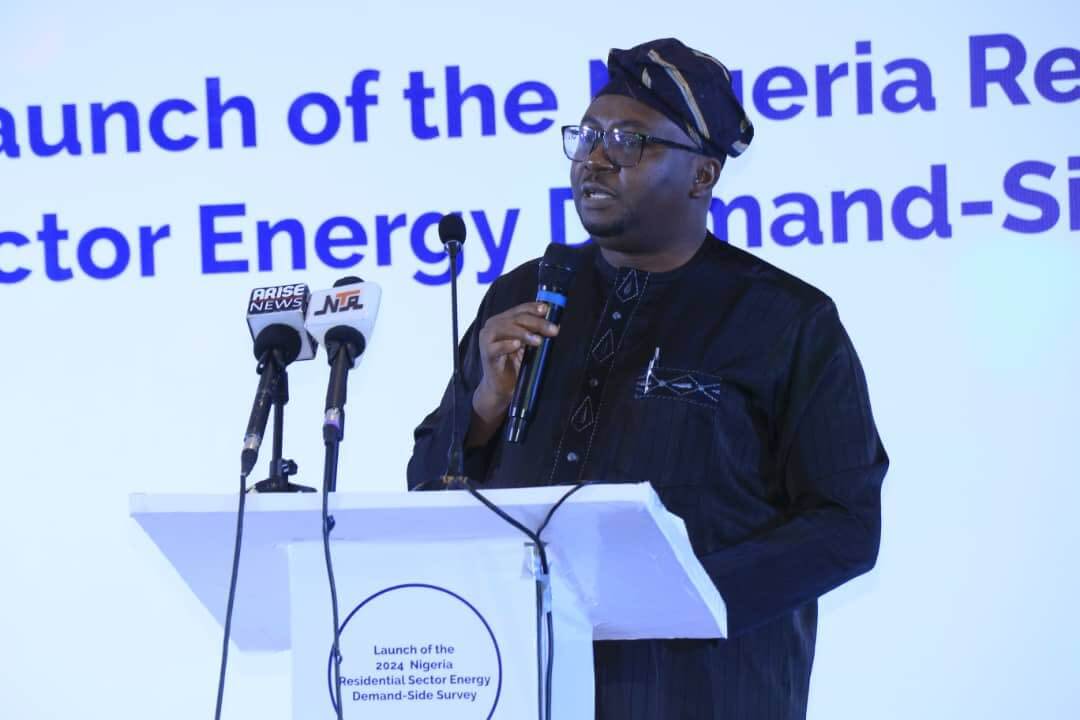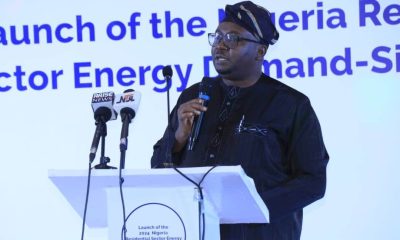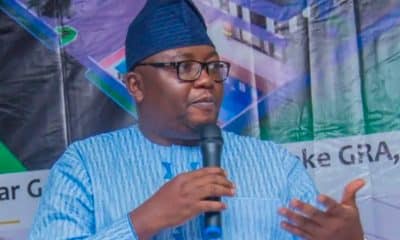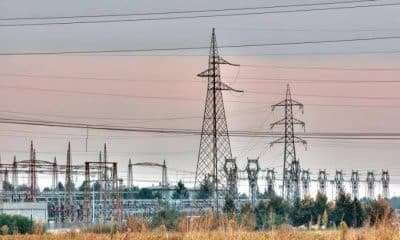Nigeria News
Nigeria To Pay ₦24 Trillion For Electricity Subsidy In 2024

The federal government will pay a cumulative total of ₦24 trillion as electricity subsidy to maintain stability across the country.
This is as the Minister of Power, Adebayo Adelabu, regretted constant attacks on transmission lines costing the government ₦10 billion to fix vandalized assets.
He decried the aged state of most electricity assets across the country and the unwillingness of most of the sector’s players to conduct their businesses in line with rules and regulations.
Adelabu stated this while speaking at PWC’s Annual Power and Utilities Roundtable themed ‘Reigniting Hope in Nigeria’s Electric Power Sector
The Minister of Power represented by his Chief Technical Adviser, Adedayo Olowoniyi, noted that the theme resonates deeply with the present administration’s collective mission to restore trust, drive innovation, inclusive growth and deliver tangible results in the sector.
“Part of the challenge we’ve seen in Nigeria is that getting stakeholder buy-in often is a challenge. And that is why managing the value chain, especially electricity value chain in Nigeria is a big challenge. We have so many participants that may not want to follow market rules.
“And it is absolutely critical that we are all following the rules and regulations that are created by the regulator, and actually focusing on making sure that we create an environment where we have the right level of market discipline,” Adelabu said.
He highlighted that the federal government has made progress in its effort to ensure stable electricity across the country.
“We have made some progress in the past year in addressing some of the issues across the Nigeria power sector and setting the sector on the path for growth. To ensure the sustainability of the energy sector, the Federal Government of Nigeria has implemented a multi-pronged approach, spanning across legislation with the enactment of the Electricity Act of 2023,” Adelabu stated.
Emphasizing the challenges affecting the sector, Adelabu, pointed out costs incurred in repairing vandalized assets. He also accused some industry players of thwarting the efforts of the government with foul practices.
“Our successes have not been without its challenges. We have recorded frequent grid disturbances recently due to various factors, which include aging infrastructure, resource limitations, capacity inadequacy across the value chain, and predominantly a consistent vandalism experience on the transmission network across the country.
“When you have an infrastructure that is weak and dilapidated like the transmission infrastructure we have, and in addition to that, you have a significant level of vandalism; then the expectation is going to be exactly what we’re seeing today. I mean, people would not really understand the level of vandalism that occurs.
“In the last six months, TCN has probably spent close to ₦10 billion on fixing towers that have been vandalized. From a capital point of view, rather than using that capital to complete existing projects or looking at extensions and expansion, they are actually using this to fix lines that are being destroyed on a daily basis,” he added.
Earlier, the Commissioner, of Planning, Research and Strategy, Nigerian Electricity Regulatory Commission, Dr. Yusuf Alli, explained that the cumulative electricity subsidy for 2024 would soon hit ₦2.4 trillion.
“From the beginning of this year, the subsidy per month was about ₦250 billion. When the action was taken in April to increase tariff for band A, that reduced it by over ₦100 billion.
“But unfortunately, there has been some level of backsliding in the macroeconomic environment. So right now, the best estimate that we have for 2024 is that the cumulative subsidy for the year will be ₦2.4 trillion.
“The implication is that the federal government, Ministry of Finance, would have to find the money to pay the generating companies because they are the ones right now that are not getting their full money arising from the shortfalls,” Alli said.
Also speaking, the Acting MD/CEO, Nigeria Bulk Electricity Trading Plc (NBET), Mr. Johnson Akinnawo, revealed that they have disbursed ₦8 trillion since 2015.
“Since 2015 the market transaction that we have settled successfully without hitches is N8 trillion. The implication is that we are still in the market for another three years to continue to play the role that the government has put us to play.
“We expect us to continue to play our role, which is being a credible off-taker, supporting government policy and implementing government directives,” Akinnawo said.








